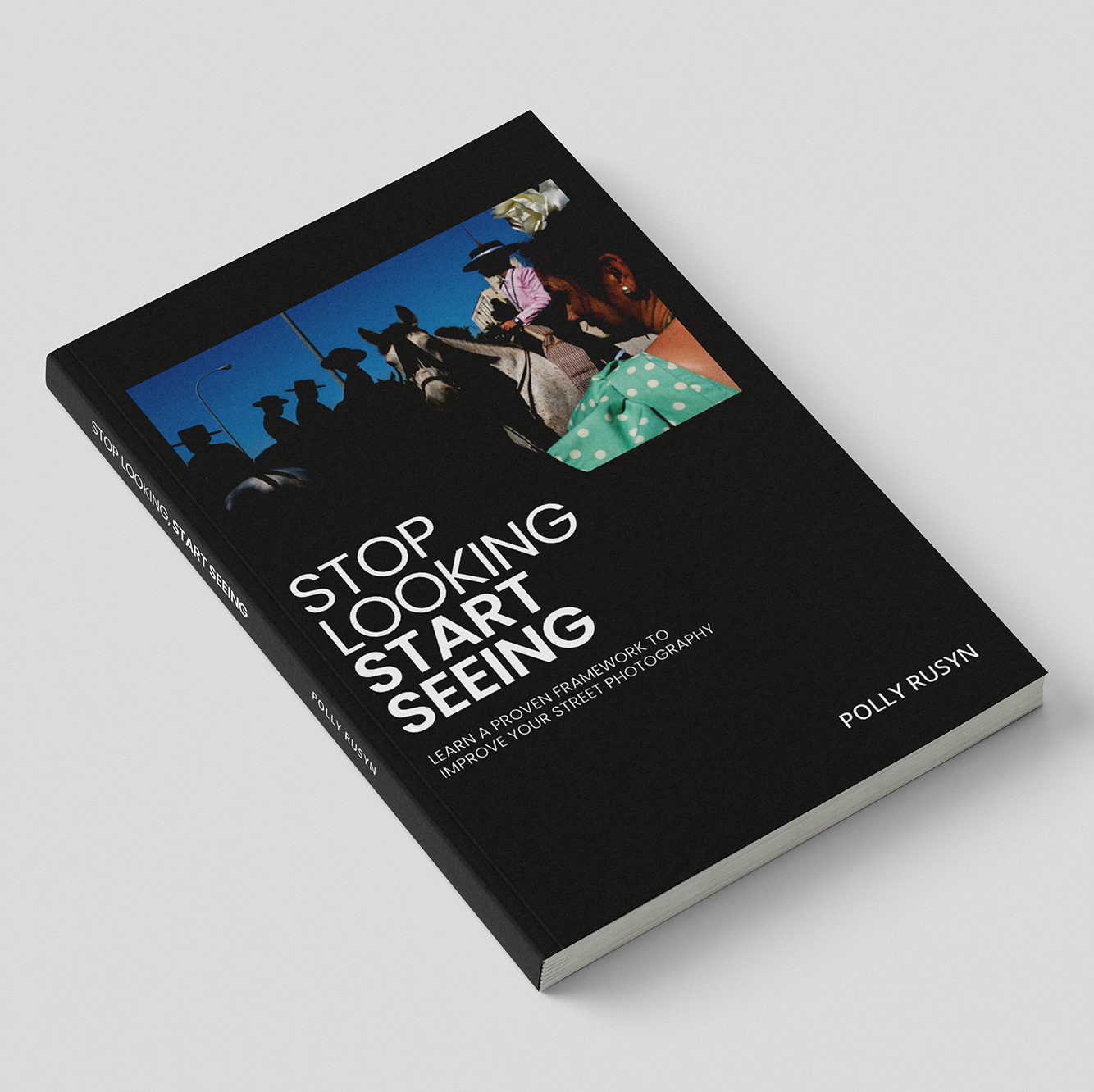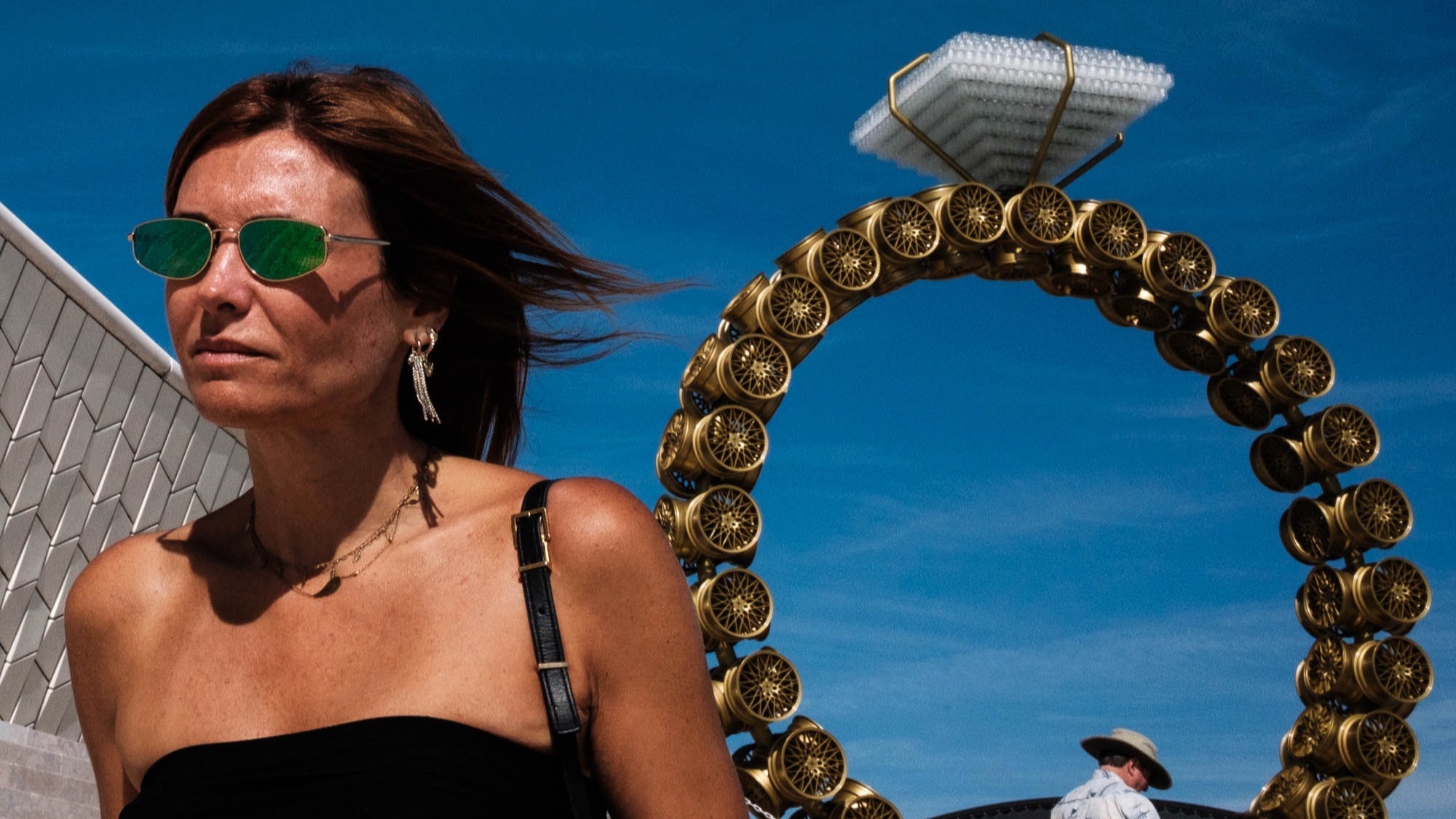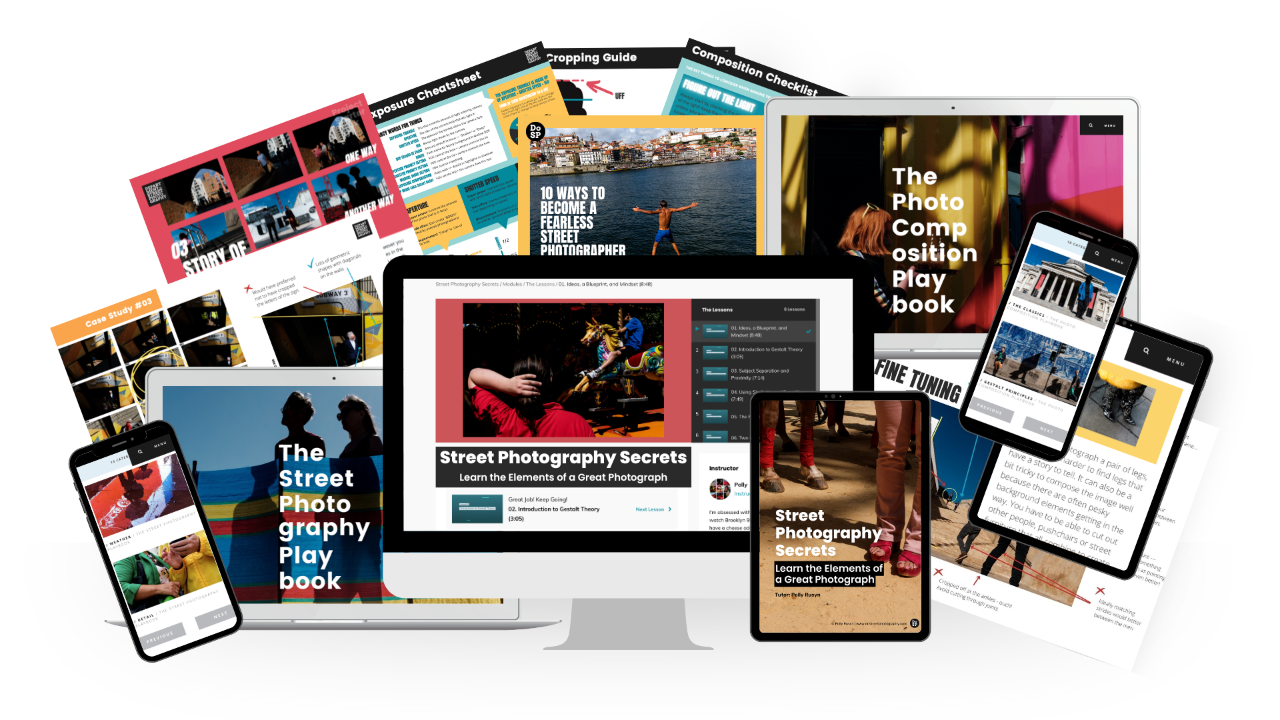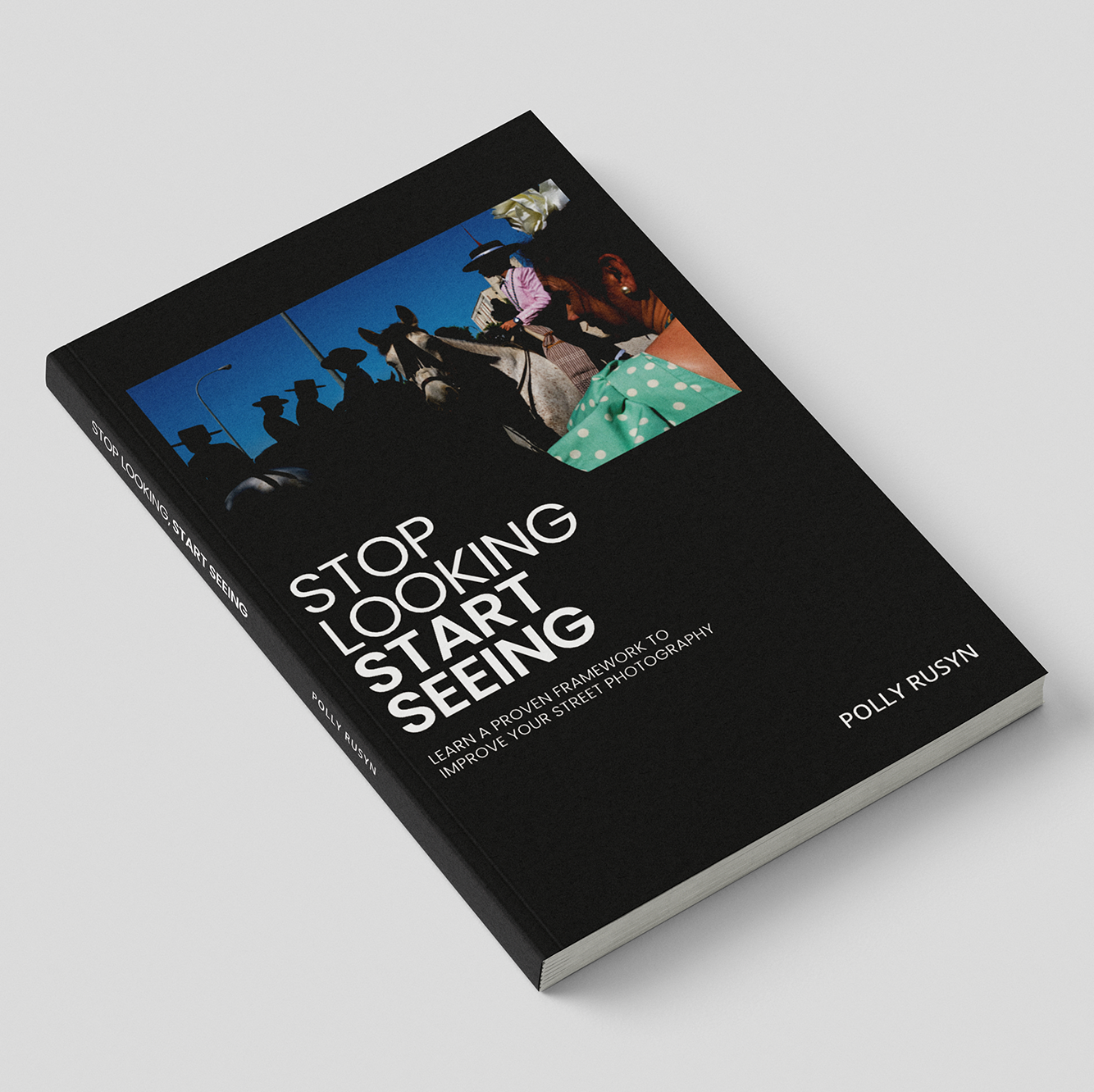How To Choose A Street Photography Workshop
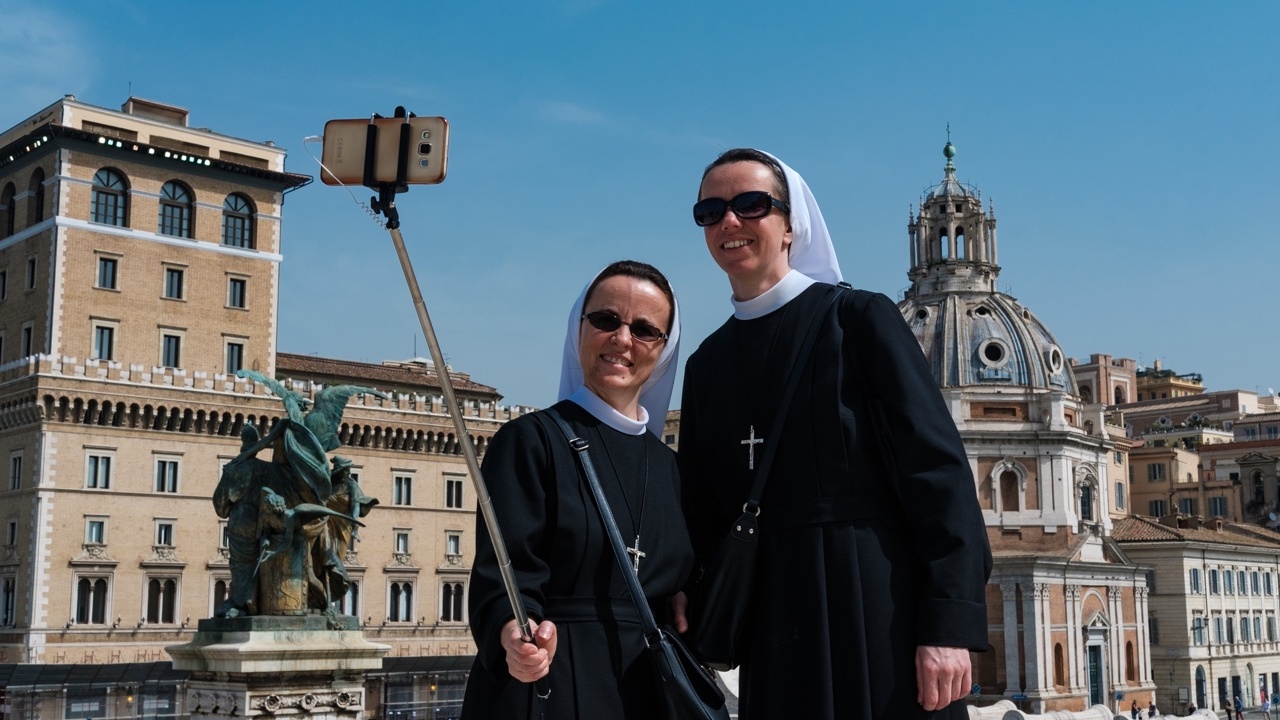
Street photography workshops come in all shapes, sizes and flavours, so it’s important for you to be able to select the right one for you. I know my style of workshopping is not for everyone, so it’s really important to me that it's super clear how things work, so that I can manage people’s expectations, as well as also attract my kinda people!
If you are thinking about taking a street photography workshop, or any photography workshop for that matter then stick around as I'm going to cover these bits and bobs:
1. Can anyone learn street photography?
2. The questions to ask yourself when choosing a workshop
3. A little bit of shameless horn tooting!
"To me, photography is an art of observation. It’s about finding something interesting in an ordinary place… I’ve found it has little to do with the things you see and everything to do with the way you see them." — Elliot Erwitt
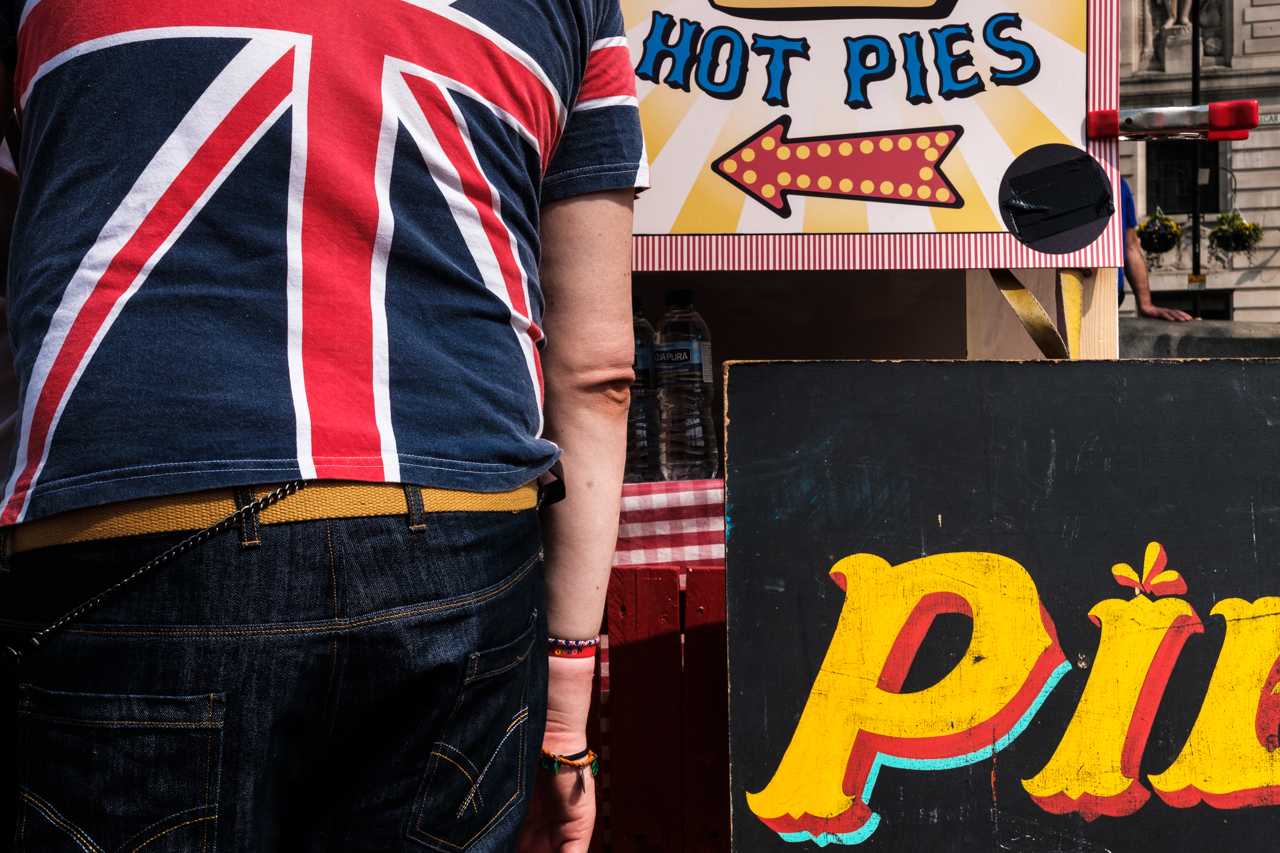
1. CAN ANYONE LEARN STREET PHOTOGRAPHY?
You might say, “What's to learn?! It's just life on the street isn't it?”... Yes, and no. First read this if you haven't already: A Definition of Street Photography...
Henri Cartier-Bresson (AKA the Godfather of Street Photography) had the opinion that nothing worth knowing can be taught! I wholeheartedly disagree (sorry Henri!), and believe everything is teachable and everything is learnable — but it depends both on the ability of a teacher to teach and a student's desire to learn. In my view, natural talent is simply a head start, that's all. Although, no doubt there will be exceptions where somebody is just terrible at something or life is simply not long enough to put in the hours necessary to learn. For example, that would apply to me and my desire to learn parkour or capoeira!!
Ultimately though, hard work and practice will get you somewhere. A workshop could be a great step for you to take (as long as it's the right one to suit you as an individual), whether you are starting out in street photography or whether you are just a bit stuck after doing it for a while. Learning should be lifelong after all, whichever way you choose to do it.
Plus, does it even matter if you are any good at something if you enjoy doing it?
"Your first 10,000 photographs are your worst." — Henri Cartier-Bresson
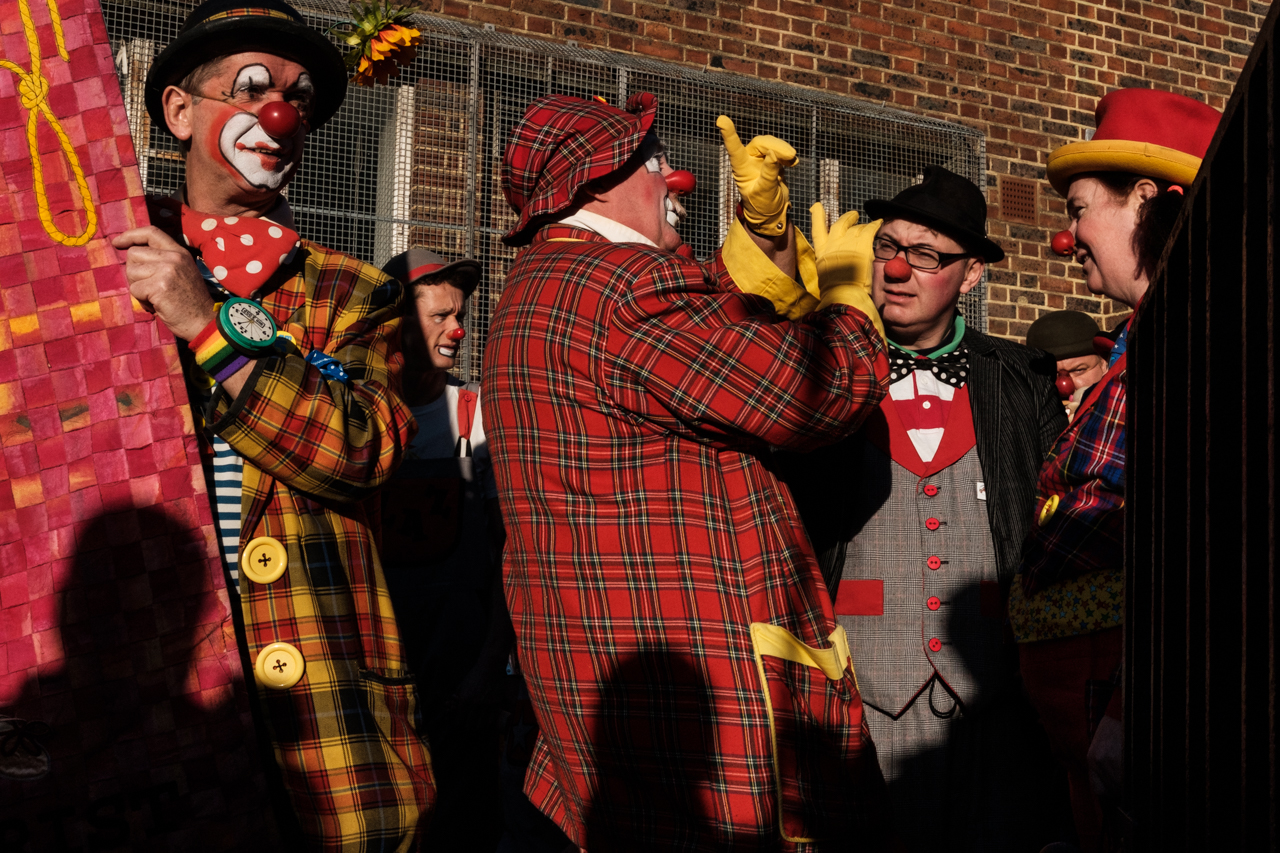
2. THE QUESTIONS TO ASK YOURSELF WHEN CHOOSING A WORKSHOP
Here goes... I'll probably put some people off booking with me, but that's cool — everyone has to find their tribe. Me included!
- Who is leading the workshop?
This is obvious right?! But you need to know a little more than their credentials and whether you like their work, it's also good to get an idea of who they are (if you haven't already met them). Ultimately, people are people and not all people like all other people! So do you like the way they "sound" on social media and on their website? Would they be someone you could see yourself hanging out with? I run weekend workshops (as well as one day workshops and short meet ups) so you would have to like me a bit to be able to deal with me bossing you about for a whole weekend! How good or bad are their jokes for example? (mine are terrible, by the way but I lean into it).
- Am I looking for something technical or creative?
Some workshops teach you the technical side of photography, others keep it creative, and some do a mix of both. I would describe Department of Street Photography workshops as being focussed on the creative but with some technical bits thrown in here and there. Many people starting out in photography feel they need to master aperture sizes, shutter speeds and ISO before they can move on to actually making pictures. This is an unnecessary obstacle, and one that can literally kill the joy of photography for some people. Just stick your camera on auto, get creative with the way you make photos, and learn how you can use the tech to your advantage as you go along, and before you know it you will know your way around your camera.
- What is my preferred way of learning?
We all have different learning styles, and workshops are run by people who have different teaching styes. It's important you find the right match! For example check to see how much of the workshop is classroom based (it may be part powerpoint seminar, part practice on the streets). This is something I decided against when I set up Weekenders for the Department of Street Photography mainly because I didn't want to keep people in a classroom whilst in a stunning (and usually sunny) European city for a weekend. The "seminar" parts of the workshop are divided into small chunks throughout the day, and are briefed on the streets, followed by specific assignments.
Also it's important to check if there is any 1-2-1 time included if this is important to you — don't assume there will be. Some people prefer the autonomy and challenge of "seeing" for themselves whilst out making pictures, while others benefit from some hand holding, and that's totally cool. And there is of course merit in being shown an opportunity for a photograph, but for me it always felt that if someone showed me a "photo" then it would be their photo taken with my camera even though it would be composed by me... People who attend Weekenders do tend to prefer autonomy, but every so often someone needs some extra help, and I'm very happy to assist — but I want to teach them how to see for themselves, so I don't include 1-2-1 time, and it would be limited too. Instead I recommend booking a 1-2-1 Mentoring session, which is when I will be glued to your side the whole time!
- Do I want to learn how to edit (make selections) and how to post-process?
This is not something I include on a workshop, although that can be done on a 1-2-1 basis afterwards if via a 1-2-1 Online Session. Again I don't want to enforce laptop time in a city that's meant to be explored; and once we sit down for dinner as a group, and that first and most refreshing drop of beer passes my lips — I am off the clock! I also feel that photos should marinade for a few days before you go in for the cull! There are other workshops that will cover all of that for you whilst on the actual workshop, and I know that is of great value to some people. Again, it's all about learning styles, and also I guess how you want to spend your time.
- Is feedback included?
This is super important, and again it's something I offer as an add-on after a Weekender in the shape of a Written Portfolio Review or a Photo Deconstruction. Feedback is essential for any workshop to provide, whether it's during or afterwards, or whether it's included or offered. Of course if selection sessions are included on your workshop then feedback would be happening in tandem.
- What about the social side?
This is so important to me personally, and a big part of what happens on my weekend workshops AKA small group street photography weekend adventures. Because the workshops are planned around a sightseeing itinerary, and has everyone regrouping regularly as well as eating lunch and dinner together, it creates a super social environment. I really want people to feel they are on holiday with friends (where everyone wants to take photos all day)! The result is a lot of repeat participants, who end up becoming friends, plus it avoids anyone feeling awkward trying to find someone to have eat with. All the restaurants I book are carefully chosen for a variety of culinary experiences, and I like finding unusual places too. Participating in any workshop also gets you an invite into our private Facebook group, Street Social.
- How much do I want to invest?
With street photography workshops you can easily spend a small fortune if you book a spot with a Magnum photographer for example, but you don't have to max out your bank account to get a great experience. Group sizes can make a difference to price — you may pay less with a slightly bigger group. I cap my workshops at 9 and that seems to work well for the social side, as well as for the way the workshops are structured. And I keep the price competitive as I want to encourage people to join me more than once; and some people book two Weekenders a year in different cities, and get something new from each experience.

Team Seville 2019
3. SOME SHAMELESS HORN TOOTING!
So yes, I've been pitching my wares in this blog, I'm not going to deny it, but I mean it when I say I would rather you chose a different workshop if mine are not right for you. You can learn more about me, Polly, and the sort of street photography I do on my portfolio website too.
Anyway, the pitching hasn't stopped yet (nearly there!) — here are some rave reviews for my Weekenders (formerly known as The Photo Weekender):
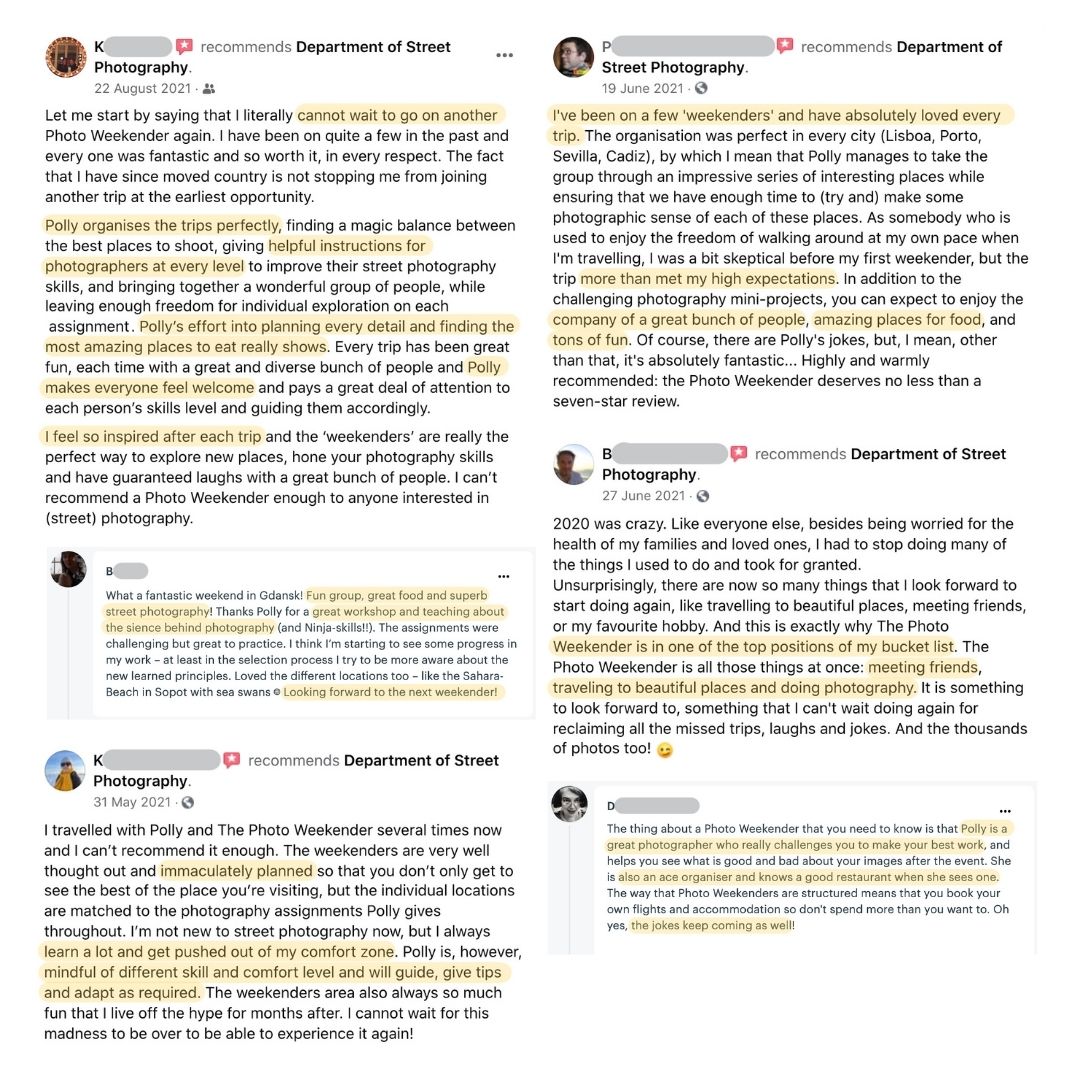
FINAL THOUGHTS
You need to find your tribe, and figure out how (and where) you like to learn. I may not the "the one" for you... but I could be! If you're like to browse through what I do head to the Resources page on this website and take a peek.
And I highly recommend you try all kinds of workshops — there'll always be something to take away. And find yourself in an online community, which can be supportive and inspiring on your street photography journey.
"The camera is an excuse to be someplace you otherwise don’t belong. It gives me both a point of connection and a point of separation." — Susan Meiselas
Words and pictures © Polly Rusyn | All Rights Reserved

